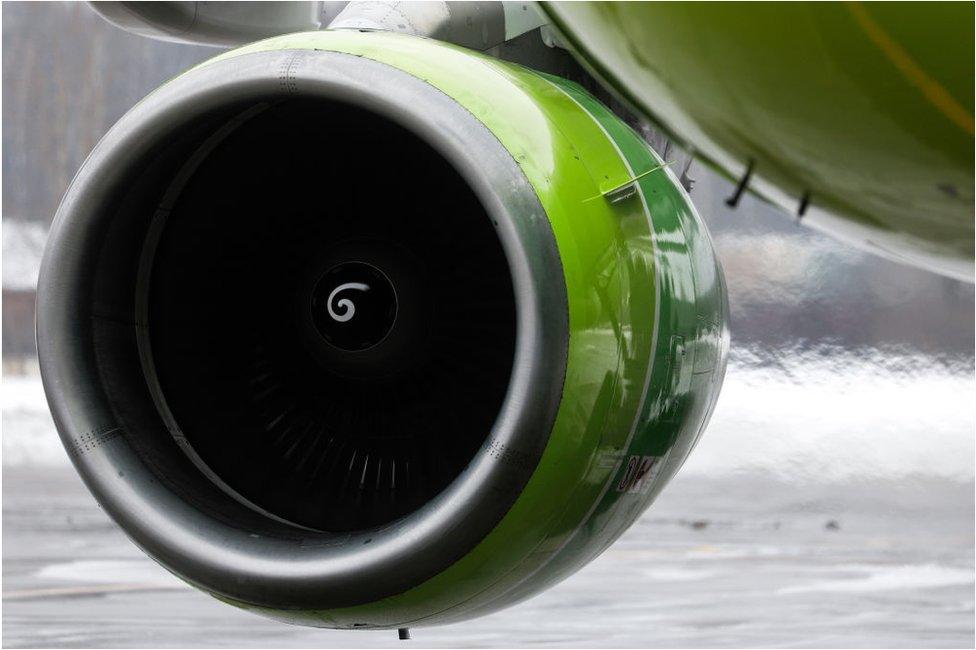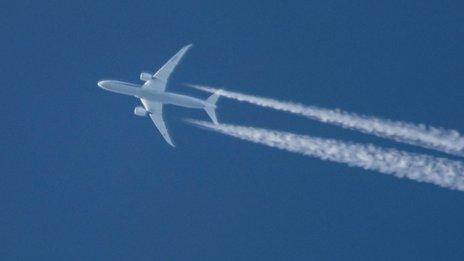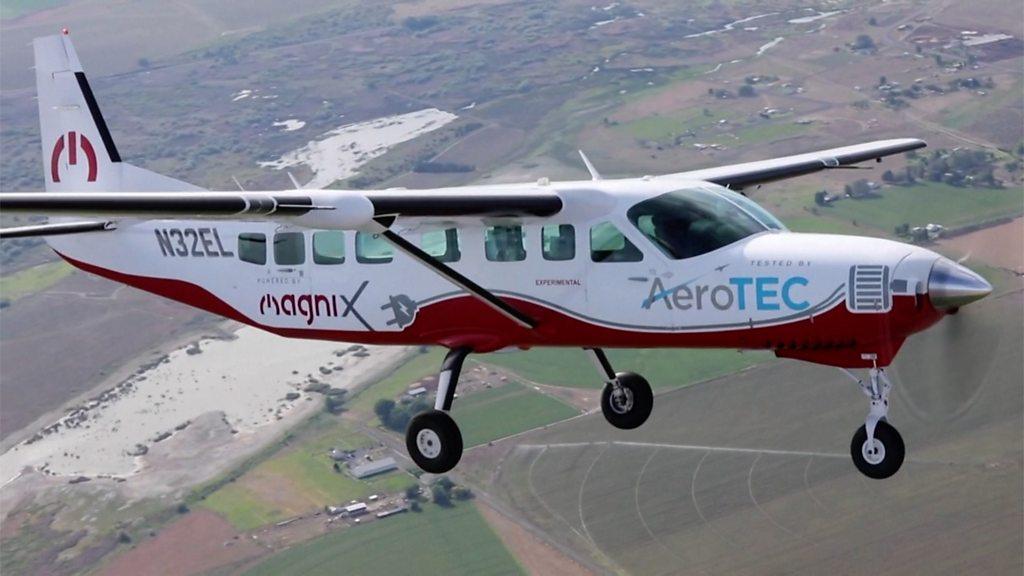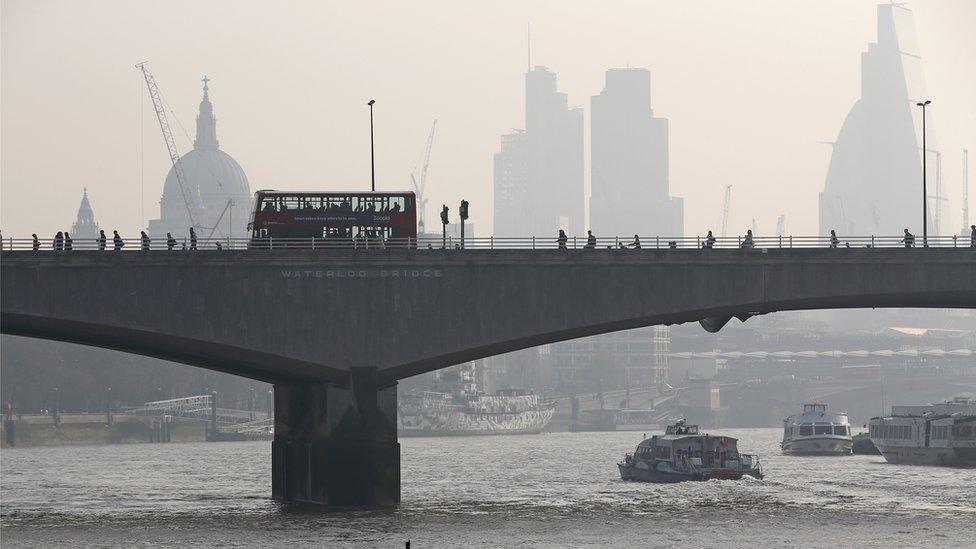Budget 2021: Rishi Sunak defends lowering domestic air duty
- Published
- comments
Sunak defends climate credentials after cut to air passenger duty announced
The chancellor has said his Budget - including tax cuts to air tax - will help the government meet its net zero carbon targets.
Rishi Sunak used his Budget to slash taxes on domestic flights, which is forecast to lead to 400,000 extra air journeys a year.
Labour's shadow chancellor said it was "astonishing", coming a week before the COP26 climate summit.
Rachel Reeves said people should be encouraged to use trains instead.
Flying within the UK will become cheaper with air passenger duty halved but the chancellor is also increasing duties on "ultra long haul" flights.
Mr Sunak told MPs on Wednesday he wanted to remove an anomaly that meant people were taxed more to fly in the UK than to Europe.
It has led to accusations from opposition politicians and environmentalists that cheaper prices will spark a domestic flying boom, at a time when ministers are urgently trying to tackle climate change.
The Office for Budget Responsibility (OBR) forecast it could lead to more than 400,000 extra passenger journeys a year, a 3.5% increase.
Labour's Rachel Reeves says she would have prioritised the "cost of living crisis" over an "astonishing" air travel tax cut
Friends of the Earth's head of policy, Mike Childs, said the chancellor's plans were "shockingly bad" and will "simply prolong the UK's dependency on fossil fuels".
And SNP Westminster leader, Ian Blackford, called the move a "disgrace" and urged the chancellor to scrap it.
He said it proved "this is not a government that understands the climate challenge that we all face" because "the fact is that C02 emissions per mile are much higher on domestic flights than they are on long-haul flights".
But speaking on BBC Radio 4's Today programme, Mr Sunak said it was important to look at the decision "in the round", alongside the introduction of a new, higher tax band for "ultra long-haul flights".
He said he wanted to deliver on a previous commitment to reform air passenger duty, "to return to the system that we used to have, so people flying within the UK are not taxed twice, which we never thought was right".
He added: "It supports the Union, it supports regional airports which are big employers but also, if you take a step back, aviation in general only accounts for about 7 or 8% of our overall carbon emissions and of that, I think domestic aviation is less than 5% so it is a tiny proportion."

Emissions from flying are set to rise rapidly over the next two decades
And speaking on BBC Breakfast, the chancellor said the policy would actually help the UK progress towards its net zero objectives.
He said: "Those who fly the furthest will pay the highest rates of APD (air passenger duty), that's consistent with our environmental objectives, that's a new band that will come into force, and, actually, yesterday the independent watchdog (OBR) said that our plans in the round will reduce carbon emission and move us further along the path to net zero."
On the issue of air passenger tax changes, the OBR said "while the Budget includes tax measures that could assist on the path to net zero, it also includes tax measures that will make the job of getting there more difficult….by lowering the price of motoring and domestic air travel over the next five years."
The Treasury has stressed that the domestic air duty policy needs to be seen within the context of the government's overall strategy to move to net zero, rather than being viewed in isolation.
But Labour said it would not have gone ahead with the cut.
Rachel Reeves told Today she found it "astonishing that, the week before COP26, where we are supposed to be showing global leadership, we have cut air passenger duty on domestic flights".
She added: "We should be encouraging people to use our train network for those journeys.
"As I said yesterday, if you are a banker on a short haul flight sipping champagne you would have been cheering in the budget yesterday.
"If you are on a modest income and you are worried about the rising cost of living, frankly there is very little to cheer."
Related topics
- Published15 March 2021

- Published29 May 2020

- Published16 December 2019
